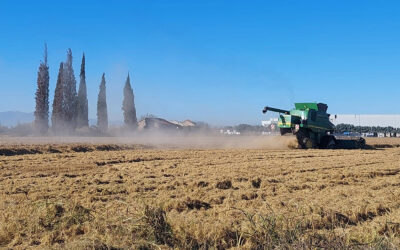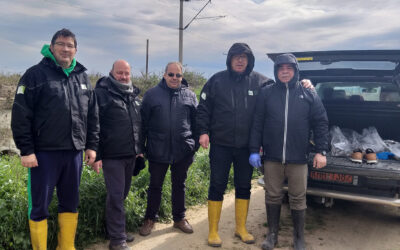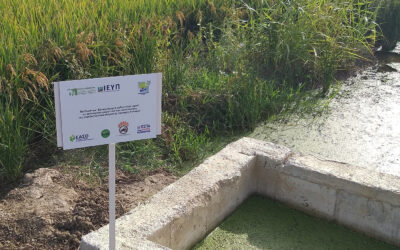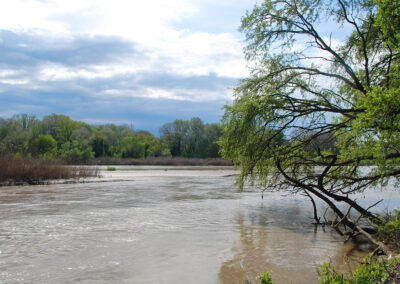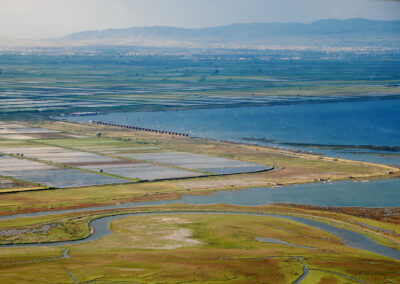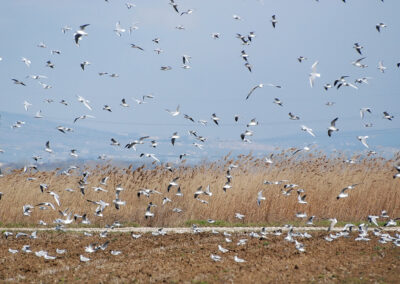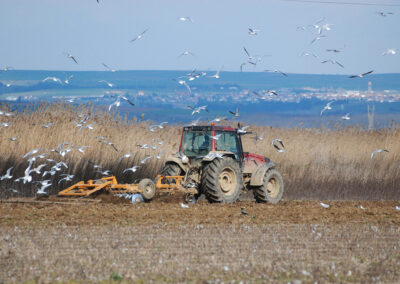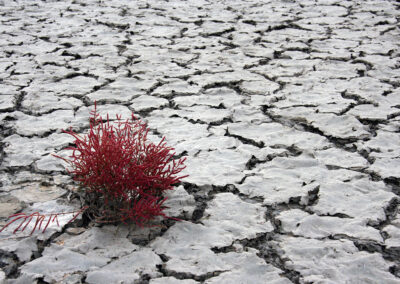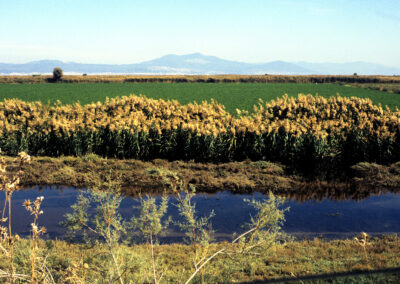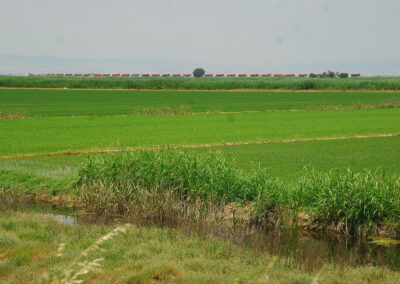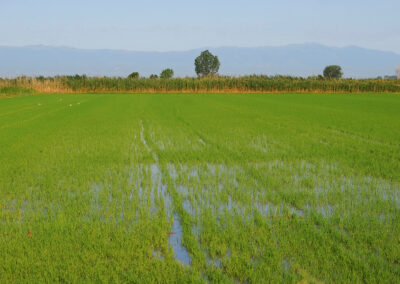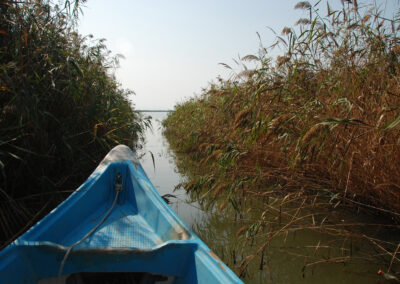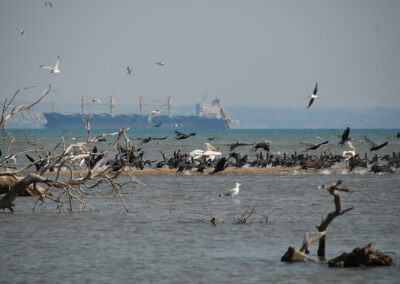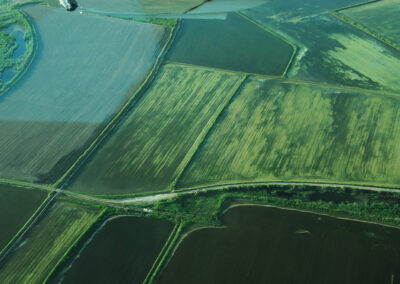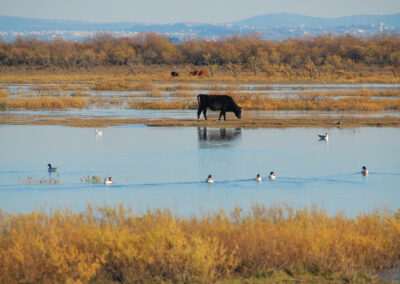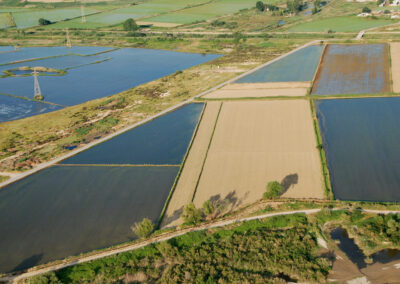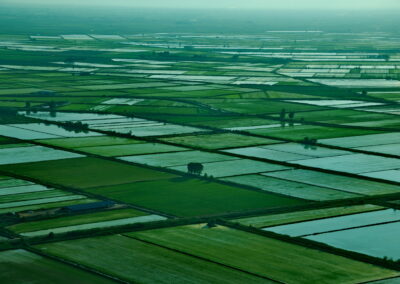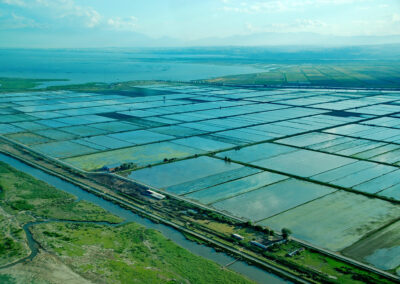
A Project for Irrigation Water Management In Rice Crop to Meet the Environmentally Minimum River Flow
The river deltas are ecologically significant areas, as they host valuable flora and fauna. However, increasing water withdrawals from the hydrological basins of rivers to meet the water needs of economic activities (agriculture, industry, etc.) inevitably lead to a reduction in the available amount of water that ends up in the deltas of the rivers, resulting in the alteration or even destruction of their ecosystems.
Considering the pressure that water bodies are under, proper management of irrigation water is deemed necessary to improve the ecological situation in the river deltas. Irrigated agriculture is the largest water consumer in our country, with significant environmental impacts.
A characteristic example is the reduction of flow at the mouth of the Axios River, which is largely caused by the use of water to meet irrigation needs. One of the crops that requires large amounts of water for its full development and maximization of its yield is rice, which in the plain of Thessaloniki is irrigated with about 2-3 thousand cubic meters of water per acre.
Taking into account that several thousand acres of rice are irrigated from the waters of the Axios River, the importance of saving irrigation water in rice cultivation and the benefits that result from securing additional quantities of water to satisfy the minimum environmental flow at the mouth of the river, especially in a protected area like the Axios Delta, becomes immediately apparent.
The necessity to find a solution for water reduction becomes even more urgent due to the expected increase in temperature in the coming decades due to climate change. The new conditions that will be created are expected to put even more pressure on the already environmentally degraded ecosystems, as the evapotranspiration of crops and consequently their irrigation needs will increase.
News
First Harvest
The first harvest at the experimental farm! Around the middle of November, the first harvest took place at the experimental farm participating in the RicEnviFlow Project, located in Agios Athanasios. The field was divided into three experimental layouts; in the first...
Soil Sampling
Soil Sampling at the pilot field of the Project 'RicEnviFlow' One of the first actions which took place within the framework of the «RicEnviFlow» project was the soil sampling at the experimental field in Agios Athanasios, in March 2023. The samplings were conducted...
Kick-Off Meeting
"Kick-Off Meeting for the RicEnviFlow Project On Monday, November 6, 2023, the kick-off working meeting of the RicEnviFlow Project was held at the facilities of the Soil and Water Resources Institute in the Industrial Area of Sindos. The meeting was attended by...
Axios River: A Precious Wetland
The Axios River is the second largest river in Greece and the second largest in the Balkans, with a length of 380 kilometers, of which 76 kilometers are within Greek territory.
It is part of the Axios Delta National Park and, along with the Kalochori lagoon, the estuaries of the rivers Gallikos, Loudias, and Aliakmonas, as well as Alyki Kitrous lagoon, forms one of the most important wetland ecosystems in Greece and Europe, protected by the Ramsar Convention for Wetlands. Additionally, the area is included in the Natura 2000 network of protected areas of the European Union.
During spring and summer, thousands of pairs of herons gather in the riparian forests and islets of the Axios River for breeding: great egrets, little egrets, squacco herons, night herons and grey herons, forming one of the largest mixed bird colonies in Greece.
Rice cultivation plays a crucial role in supporting the biodiversity of the area, especially for herons, as the flooded rice paddies serve as their primary feeding ground during the breeding season.
For more information, visit the website www.axiosdelta.gr.

